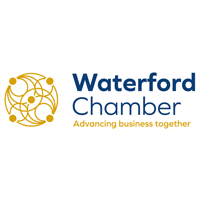Waterford Chamber has released the findings of its Q1 Business Sentiment Survey, which shows 39% of respondents say staff recruitment and retention is the top challenge for Waterford businesses.
This is followed by ‘access to finance’ at 17%, with other areas of concern being energy costs, changes in consumer spending and increasing productivity.
Staff costs have proven the top barrier to businesses attracting and retaining staff, with specific skills shortages also proving a concern.
According to Gerald Hurley, CEO of Waterford Chamber, “What’s interesting here is that 50% of the companies surveyed want to increase their staff levels in the next 12 months. Business in general terms is good, profits and productivity are increasing, but securing the right people to drive our economy forward is the overarching challenge.
“Training and upskilling obviously plays an important role here, and it is heartening to see that 72% of companies plan to increase their staff training in the next 12 months. This is important for our university as it develops in line with industry demand and organisations like Waterford Chamber Skillnet, which are demand led, in providing the relevant training to meet the needs of our employers.”
Perhaps not surprisingly, when asked ‘What is the biggest issue for Waterford's competitiveness?’, ‘availability of housing/rental accommodation’ topped the poll at 44%, followed by availability of ‘skills & talent’ at 17% and ‘business taxation/rates/levys/costs’ at 11%, among others.
“Housing is the number one challenge not just in Waterford, but nationally, so this result was to be expected and everyone surveyed believes more needs to be done in terms of infrastructural investment in Waterford, particularly around the co-ordination in sustainable community, social and housing development.
“What is also important to note is that the one infrastructural development that came to the fore for most, in terms of needing investment, was Waterford Airport, which is seen as a key driver of business and the tourism economy. This was followed by traffic management, particularly along the Quays and investment in SETU, as well as broadband, retail experiences and more manufacturing and office space to attract indigenous and foreign direct investment.
“Looking at the overall picture, it is clear to see that while business is moving forward and growing, issues such as recruitment and the cost of doing business are posing as major challenges. Our business community is very much in-tune with what is going on around them in terms of economic and structural development, but they need to be supported so we can drive our economy forward and achieve the ambitions goals in line with the National Development Plan.”
Waterford Chamber will be issuing their Q2 Business Sentiment Survey in the coming weeks, collating data to inform their lobbying agenda and collaborating with stakeholders to make sure the needs of the business community are not just heard, but met.



